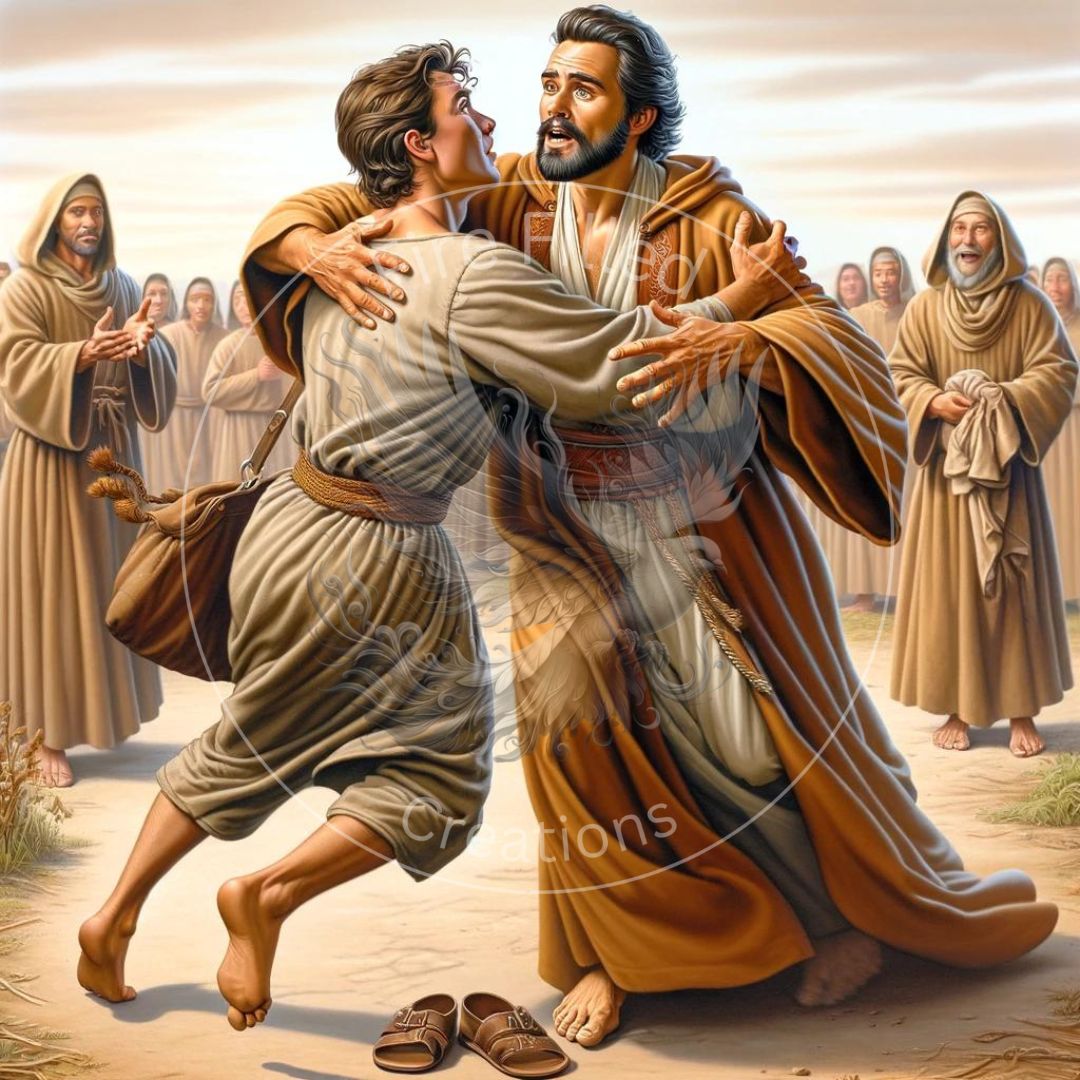
Mending Fences Week 3 and 4

Old Testament Example:
Joseph and His Brothers: Forgiveness and Redemption
The story of Joseph and his brothers, recounted in Genesis, is a profound narrative that vividly illuminates the theme of reconciliation. This tale begins with the deep-rooted envy and hatred Joseph's brothers harbored against him. Fueled by jealousy over their father's favoritism and Joseph’s prophetic dreams of greatness, they conspire against him, ultimately selling him into slavery. This act of betrayal sets Joseph on a journey marked by incredible suffering and hardship, yet also guided by divine providence.
Joseph's journey from favored son to slave, and then to a prisoner, is a testament to his resilience and unwavering faith. Despite the series of misfortunes—being sold into slavery, falsely accused by Potiphar’s wife, and languishing in prison—Joseph remains steadfast and faithful. His ability to interpret dreams, a gift from God, eventually leads him to Pharaoh's court. Joseph interprets Pharaoh's troubling dreams, predicting seven years of abundance followed by seven years of severe famine. His wise counsel earns him the position of Vizier, the second most powerful man in Egypt.
Years later, the severe famine forces Joseph’s brothers to travel to Egypt in search of food. They unknowingly find themselves at the mercy of the brother they betrayed. This moment is charged with dramatic tension as Joseph recognizes his brothers, but they do not recognize him. He is presented with a choice: to exact revenge or to forgive. The years of suffering and separation could have hardened Joseph’s heart, yet he chooses a path of forgiveness and reconciliation.
In a poignant and emotionally charged scene, Joseph reveals his identity to his brothers. "I am your brother Joseph, the one you sold into Egypt! And now, do not be distressed or angry with yourselves because you sold me here, for God sent me before you to preserve life" (Genesis 45:4-5). This revelation is both a declaration of his forgiveness and an acknowledgment of God’s greater plan. Joseph understands that the betrayal he endured was instrumental in positioning him to save not only Egypt but also his family from starvation.
Joseph’s response to his brothers’ betrayal highlights several key themes. First, it underscores the power of forgiveness. By choosing to forgive rather than seek revenge, Joseph breaks the cycle of retribution and paves the way for healing and reconciliation. His forgiveness is profound, not only absolving his brothers of their guilt but also reassuring them that their actions, though meant for harm, were used by God for a greater good.
Second, Joseph’s recognition of a higher purpose in his trials offers a powerful lesson in seeing beyond immediate pain and suffering. His perspective transforms his personal misfortune into a testimony of divine providence and purpose. "You intended to harm me, but God intended it for good to accomplish what is now being done, the saving of many lives" (Genesis 50:20). This acknowledgment encourages us to trust in God’s plan, even when we cannot see it in our present circumstances.
The story of Joseph and his brothers serves as a timeless reminder of the redemptive power of forgiveness and the importance of understanding the broader scope of God’s plan. It teaches that reconciliation often requires looking beyond personal hurt and recognizing the potential for greater good. Joseph’s journey from betrayal to redemption and his ultimate act of forgiveness reflect the essence of "mending fences" — healing fractured relationships and restoring harmony through grace and faith.
In embracing forgiveness and recognizing a divine purpose in our trials, we are encouraged to mend our own fences, fostering reconciliation and healing in our relationships. Joseph’s story is an inspiring example of how faith, resilience, and forgiveness can transform the darkest moments into opportunities for profound redemption and restoration.

New Testament Example:
Parable of the Prodigal Son: Embracing Return
Perhaps no story better captures the essence of "mending fences" in the New Testament than the Parable of the Prodigal Son. This profound narrative, found in Luke 15:11-32, reveals the heart of God towards reconciliation and forgiveness. The story begins with a young man who, in a bold and disrespectful move, demands his inheritance from his father before it is due. This request symbolizes a severing of the relationship, as he essentially wishes his father dead to gain his portion of the estate.
The son then journeys to a distant land, where he squanders his wealth in reckless living. As a famine strikes the land, he finds himself destitute, working in a pigsty and longing to eat the food given to the pigs. This moment of utter despair prompts a critical realization; he decides to return home, not expecting to be received as a son but hoping to be hired as a servant. This decision marks the beginning of his journey to mend the broken relationship with his father.
Upon his return, the young man is filled with shame and trepidation, anticipating punishment or rejection. However, the father’s reaction is astonishing and deeply moving. As soon as he sees his son approaching from a distance, he runs to embrace him. This act of running—undignified for a man of his stature—signifies the father's overwhelming compassion and eagerness to restore their relationship. He embraces his son, who begins to confess his sins, but the father interrupts, calling for the best robe, a ring, and sandals to be brought for him, and orders a feast to celebrate his return.
The father’s declaration, "For this son of mine was dead and is alive again; he was lost and is found" (Luke 15:24), encapsulates the essence of divine forgiveness and restoration. It illustrates the joy found in reconciliation and the readiness of God to forgive and restore, regardless of past misdeeds. The parable underscores that true repentance and humility can lead to complete restoration, transforming a state of brokenness into one of joyous reunion and renewed relationship.
